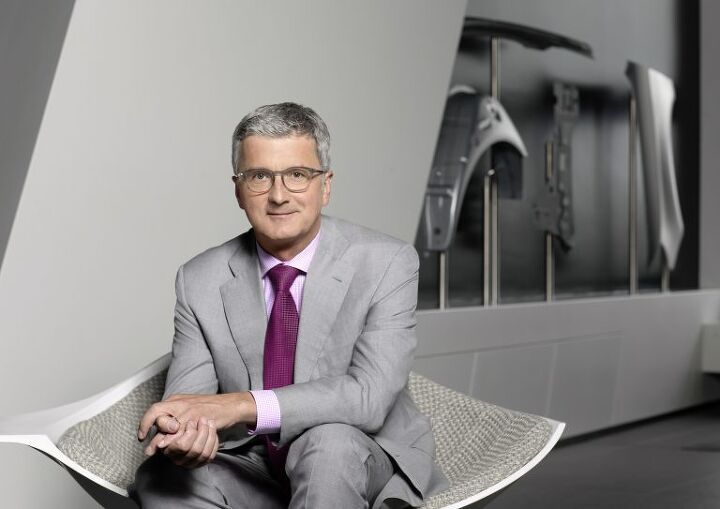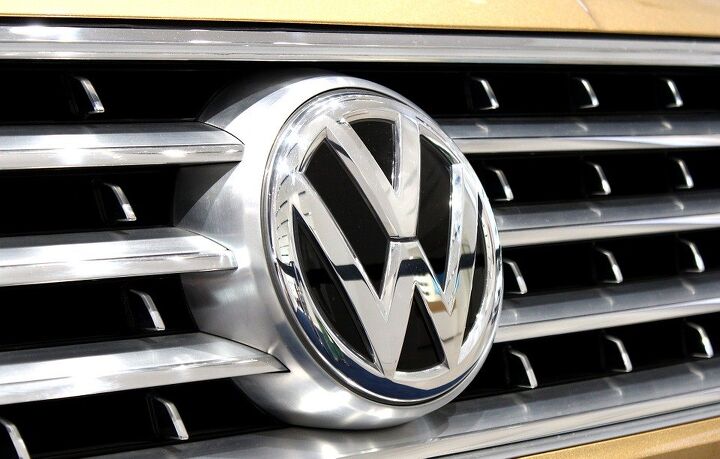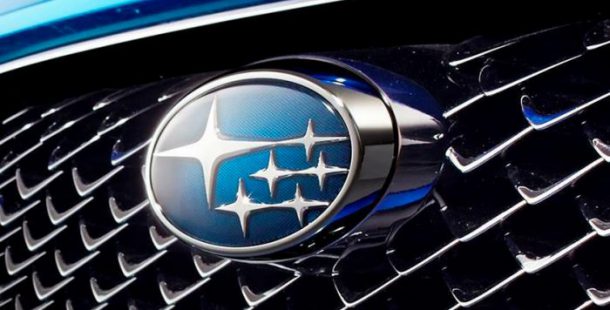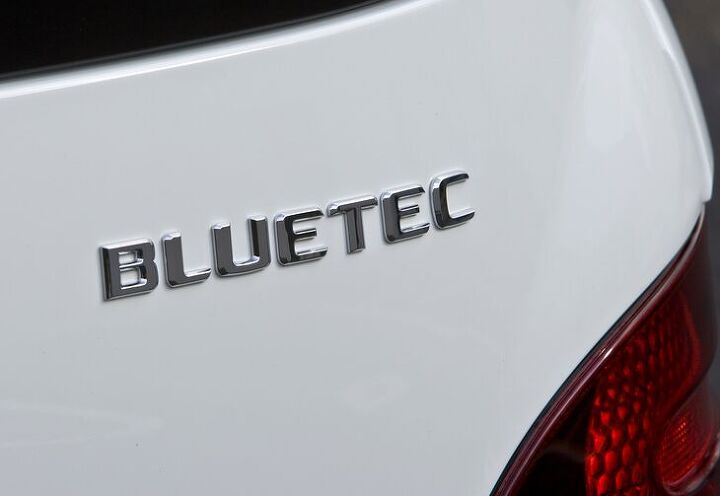#EmissionsCheating
Toyota's Hino Motors Confesses to Diesel Emissions Cheating [UPDATED]
A few years ago, you couldn’t sneeze in an elevator without it landing on at least one automotive executive in trouble for diesel emissions cheating. Following Volkswagen’s diesel emissions scandal in 2015, regulators around the globe smelled blood in the water and the feeding frenzy began. Diesel cars that were previously championed as the cleaner alternative in Europe were now public enemy number one. Manufacturers responsible for long-lasting engines with high efficiencies were subjected to enhanced scrutiny. It was something of a sooty witch hunt and has gradually lost steam as the world found new, more immediate things to be outraged with.
But that doesn’t mean nobody has been checking up on them. Hino Motors, Toyota’s truck and bus arm, has confessed that it caught itself cheating after launching an internal investigation into its North American operations. Apparently, some products that should have been subject to Japan’s 2016 emission regulations were not — among some other issues.
European Union Empowered to Recall Vehicles Over Emission Violations
Updated rules have granted the European Commission the ability to not only check cars for emissions compliance, but also issue recalls for those found in violation.
Previously, recalls were required to be issued by the EU member nations that initially certified the vehicles. But the European Commission claims this tactic has allowed automakers to easily circumvent regulatory mandates, making large-scale recalls slower to progress for almost a decade. Following Volkswagen’s diesel emissions scandal in 2015, the EU ramped up efforts to consolidate regulatory powers after the United States was the one that initially busted the German automaker for cheating during pollution tests.
The European Commission will now be able to enact recalls on its own authority and fine automakers up to 30,000 euros ($35,725 USD) per vehicle. Those in broad opposition of giving Brussels additional authority have criticized the changes, while those supportive of the EU claim it will be able to deliver environmental justice more swiftly than individual nations.
Former Audi Managers Indicted in Dieselgate Case
On Thursday, Munich-based prosecutors announced the indictment of four more ex-Audi managers in relation to Volkswagen Group’s infamous diesel emission scandal. This follows the charges brought against former CEO Rupert Stadler and a handful of Audi staffers in 2018.
The latest indictment involves three former board members and one department head who has since retired. Prosecutors stated the alleged crimes relate to 434,420 cars manufactured by VW Group brands which we already know where sold with trick software designed to circumvent emissions testing, according to Reuters and German outlet Handelsblatt. However, the grand total of vehicles suspected to be in violation of regulatory law are suggested to be closer to 11 million globally.
Dastardly Diesels: Suzuki and Jeep Busted Breaking EU Emissions Rules
While Volkswagen remains the industrial face of diesel-related scandals, it’s just one of many automakers fingered for emissions cheating. VW was simply the first to be dragged through the coals, and its great shame encouraged governments around the world to launch investigations into whether or not other manufacturers are guilty of similarly uncouth behavior.
Dutch road authority RDW has a problem with diesel models produced by Jeep and Suzuki. While Europe has fallen out of love with the diesel of late, the accusations are a little worse than simply falling to adhere to EU emission standards. RDW says the two automakers used “prohibited emissions strategies” that allowed vehicles to emit higher levels of nitrogen oxide (NOx) on the road than during testing conditions.
Daimler Investors Seeking 900 Million in Diesel Damages
Over 200 investors are seeking 900 million euros in damages over claims that Mercedes-Benz parent Daimler failed to disclose the use of emissions cheating devices similar to those that got Volkswagen into trouble back in 2015. This isn’t the first time the issue has come up. German prosecutors claimed nearly 690,000 Mercedes-Benz vehicles came equipped with rigged exhaust gas after-treatment systems and Daimler was slammed with a €870 million ($960 million) fine over the negligent violation of European clean air standards in the fall.
Those who invested into the firm are hoping to recoup losses from the scandal after the automaker’s share price shat the bed. Lawyers repressing the investors are seeking compensation after Daimler’s stock fell from €90 a share fall to approximately €60 in 2018, once German regulators began formally accusing the automaker of trying to circumvent emission rules.
Audi Still Under Threat of New Dieselgate Fines
Dieselgate never dies. Germany’s Federal Motor Transport Authority (Kraftfahrt-Bundesamt) has informed Audi that it will be subjected to additional fines if it fails to meet upcoming deadlines for retrofitting manipulated diesel models with updated software.
Reports from Bild am Sonntag, later confirmed by Reuters, claim the regulatory authority issued three letters to the automaker stipulating that it had until September 26th to replace the software in emissions-cheating V6 and V8 TDI engines (originally certified as EU6 compliant) lest it be fined 25,000 euros (about $27,500) per vehicle. While fines are only applicable to cars still carrying illicit software, the transport ministry estimated some 127,000 Audi vehicles qualified in Europe last year. There were originally around 850,000.
VW Delays Decision to Dump Audi CEO Rupert Stadler
Volkswagen Group’s supervisory board has postponed a decision on the future of Audi CEO Rupert Stadler, who has been in jail since June due to his presumed connection with the automaker’s diesel malfeasance. Despite having scheduled a Monday meeting to assess Stadler’s role within the company and how best to end it, the board found itself unable to come to a conclusion by Friday.
That does not mean the imprisoned CEO will be getting a pardon from the company, however. Stadler’s representatives and VW simply failed to negotiate a solution that would see Stadler step down from his role as Audi CEO and as a VW Group management board member, sources close to the situation told Automotive News Europe.
VW Board Prepares to Decide Jailed Audi CEO's Fate
Volkswagen’s supervisory board will meet on Monday to map out the future of Rupert Stadler, the suspended chief executive of its Audi brand. German outlet Der Spiegel reported on Friday that VW intends to decide whether or not Stadler, who has been in police custody since mid-June as part of a broader probe into the company’s diesel cheating fiasco, should resign his post.
Officially, the automaker’s position on the matter is that the CEO is innocent until convicted of criminal wrongdoing. But having him in the crosshairs of the media and investigators isn’t great PR for the company.
Volkswagen Preparing for Mass Firings
Volkswagen Group intends to fire a group of employees implicated in the diesel emissions fraud scandal. German prosecutors in Brunswick have identified an inner circle of 39 “suspicious engineers” it believes contributed directly to the emissions cheating. It’s expected that VW will carry out these terminations as quickly as possible, with additional waves of firings to follow.
According to Handelsblatt, Volkswagen made the decision to cleanse its ranks after being granted access to the prosecution’s investigation files in July. The automaker followed up with a series of employee “interviews” and a month-long review process. VW has already announced the dismissal of six high-ranking employees, with former development head Heinz-Jakob Neußer (Neusser) being the most noteworthy.
Nissan Confesses to Falsified Testing Data for Japanese Vehicles
After Volkswagen’s diesel emissions scandal came under public scrutiny, numerous industry analysts prophesied it would not be an isolated incident. Cheating had been done in the past, and would likely continue into the future. In fact, numerous experts claimed every major automotive manufacturer probably engaged in illicit behavior to some degree. With so many laws and employees who may be interested in shirking them, it’s bound to happen time and time again.
On Monday, Nissan Motor Co. admitted it improperly measured exhaust emissions and fuel economy for 19 vehicle models sold in Japan. Late last year, Nissan and Subaru both confessed that they had allowed uncertified technicians to conduct finial vehicle inspections. Initially, the issue seemed like a harmless oversight, but in some cases the failing went unnoticed for decades, resulting in falsified data as a way to cut corners. Both Mitsubishi Motors and Suzuki admitted in 2016 that they exaggerated the fuel economy of their vehicles by cheating on tests.
Volkswagen Group Fined an Additional $1.18 Billion for Emissions Cheating, More Suspects Emerge at Audi
In 2017, the U.S. hit Volkswagen with a $4.3 billion fine as part of the company’s plea agreement for violating of the Clean Air Act. It was a rough ride for the automaker, caught using defeat devices on its diesel engines, but it brought the scandal more or less to a close in America.
An ocean away, it seemed nothing would come of the endless raids by German authorities on VW-owned facilities. Apparently, the wheels of justice just turn a little slower in Europe, as the automaker was fined 1 billion euros on Wednesday. It’s one of the largest financial penalties ever imposed on a company by German authorities.
Subaru Admits Employees Manipulated Fuel Economy Data
In December of last year, Subaru and Japanese law firm Ohno & Tsunematsu opened an internal investigation to determine if employees tampered with fuel economy ratings for some of its Japanese-market vehicles. The issue arose in the wake of Nissan and Subaru being faulted for decades of improper final inspection procedures at specific plants. While the issue initially seemed relatively benign, subsequent interviews with Subaru employees resulted in confessions that “certain data with respect to fuel economy and emissions may have been altered” during the course of final vehicle inspections.
What originally appeared to be automotive employees taking bureaucratic shortcuts evolved into something a bit more serious. Subaru recently released the results of the investigation and has admitted to falsifying the fuel consumption data of 903 cars assembled at its Gunma Manufacturing Division and Yajima factory. However, the internal probe only encompasses December 2012 until November 2017. All data from before this period is mysteriously absent.
Interesting, considering the suspect employees claim the figure flubbing probably started around 2002.
Extensive Probing Continues In Germany
While companies are often found guilty of sketchy and illicit behavior, it’s becoming increasingly difficult not to feel some measure of sympathy for German automakers. The same goes for the government officials whose job it is to repeatedly raid the homes and offices of people employed by those manufacturers. Once gain, German prosecutors have searched both Volkswagen and BMW over diesel-related shenanigans.
Volkswagen saw 13 of its offices raided in Wolfsburg throughout the month of March. Braunschweig-based authorities seized physical and digital files in the hopes of catching the automaker in a lie from 2015. At the time, VW claimed an in-house investigation found it had understated fuel consumption and carbon dioxide emissions on no more than 36,000 vehicles. Considering the diesel emissions scandal affected far more vehicle than this, as well as the company’s much higher earlier estimate, prosecutors hope to catch the company out.
Meanwhile, BMW saw its facilities searched over suspicions that it employed a defeat device to circumvent diesel emission testing. The automaker said authorities were looking into “erroneously allocated” software on the BMW 750d and BMW M550d.
Daimler to 'Voluntarily' Recall 3 Million Vehicles in Europe Over Diesel Emissions
With Volkswagen’s emission crisis winding down (but seemingly never over), Daimler AG is taking center stage as the next automaker to potentially face serious hardship for dastardly diesel misdeeds. For the last few months, investigators from the United States and Germany have begun suspecting that Mercedes-Benz equipped its vehicles with defeat devices similar to those used by VW. While no evidence of fraud has surfaced, there’s reason to believe Daimler may have violated emission standards — especially now that it has decided to recall 3 million late-model diesels.
“The public debate about diesel engines is creating uncertainty,” Daimler CEO Dieter Zetsche said in a statement on Tuesday. “We have therefore decided on additional measures to reassure drivers of diesel cars and to strengthen confidence in diesel technology.”
California Demands VW Build Electric Charging Stations in Poor Neighborhoods
As part of its emissions cheating penance, Volkswagen AG previously agreed to support clean vehicles by injecting a juicy $2 billion into green initiatives in the United States. A whopping $800 million of that sum was reserved for California. On Thursday, state legislators pressed the automaker to spend electric charging infrastructure funds in low-income areas, passing a bill included in a budget package supported by Governor Jerry Brown.
The reasoning behind forcing VW to install more charging stations in disadvantaged communities is twofold. First, and most obviously, is the fact that poorer neighborhoods typically don’t receive the same level of infrastructure advancement as affluent or high traffic areas. In fact, they’re probably the last place the state would bother installing EV charging stations. Secondly, it’s a good way to keep this punishment from becoming a business opportunity.
Criticism arose when rival automakers realized Volkswagen’s charging network could become profitable and give it an early advantage in a competitive new market, especially if it could handpick the sites.



![Toyota's Hino Motors Confesses to Diesel Emissions Cheating [UPDATED]](https://cdn-fastly.thetruthaboutcars.com/media/2022/07/19/9150960/toyota-s-hino-motors-confesses-to-diesel-emissions-cheating-updated.jpg?size=720x845&nocrop=1)

























Recent Comments